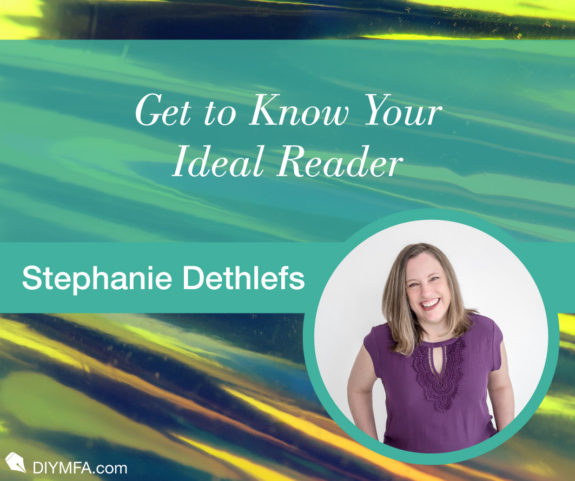When I wrote my middle grade novel, Unspoken, I had one person in mind: my daughter. I wrote it so that she would have a book where she could see herself in the pages where her particular challenges were illustrated and honored (and, of course, watch as things turned out okay!)
Yet I knew that I needed to write it for more than just her. While she would certainly be an ideal reader, she was only one person, and I wanted others to connect with it. The message of the novel needed to be shaped so that it became a universal truth that would resonate with young readers, whether they faced the specific challenges of the characters or not.
I like to think of my future readers as being inside concentric circles. The largest circle would be anyone who might pick up the book. This is, of course, far too broad of a category to spend much time worrying about, aside from being clear on genre conventions. But the next smaller circle would contain that group of people that you really want to read my book; those whose hands I’d put it in myself if I could.
The truth is that we can’t control how readers are going to receive our writing. (If only we could!) But there are a series of steps that we can take which can increase the chances that a reader will connect with your story.
And one of those steps is to get to know our ideal readers by reflecting on a series of questions.
Who is your ideal reader?
This question is just scratching the surface. You might answer with details like age, family structure, gender identity, geographical location, socioeconomic factors, race or cultural identity, etc. We don’t need to know their favorite type of latte or personal habits (unless, of course, that is important to the plot of your story), so don’t worry about going too specific here. We just want a general sense of the space they occupy in the world.
What do they want from a book?
Consider your ideal reader as a reader. What do they love in a book? What don’t they like? What keeps them turning the pages? What makes them pass a book along to a friend?
Of course, every reader is different. But these are your ideal readers. We’re narrowing the focus so that you can write your book in a way that speaks directly to the people you want to speak to. And we’re getting even more personal with the next two questions.
What do they want in their own life?
When we read, we are subconsciously (or sometimes consciously) seeking validation and healing for the ways that we experience pain. If your book can provide answers to the big life questions your reader is asking, they will connect to your story on an even deeper level. Even when we pick up a book purely for entertainment, we make emotional connections between the journey the protagonist is on and our own lives.
As you answer this question, focus less on external goals and more on the emotional desires they have. This is about how they want to feel. Do they long for a sense of acceptance or belonging? Do they long for a happier marriage, an easier time parenting, to feel more successful in their work life? Do they wish they could make a bigger difference?
What keeps your ideal reader up at night?
If you could sit beside your ideal reader with a cup of tea and get personal, what would they say is their biggest fear or regret? The reason we want to consider this is because – ideally – our book will become a salve for that pain.
What will your book show or provide to them?
In your story, your protagonist is going to go through some sort of emotional growth. By the end of the book, they will have a new understanding about something they were struggling with in the beginning. By showing our ideal reader this change, we are showing them what’s possible in their own lives.
A quick note here: it’s important to remember when we talk about the message behind your book or the point you are trying to make, we are not talking about blatant preaching or proselytizing. We’re not putting a moral at the end of our story like an Aesop’s fable. But every story has a point that it’s trying to make about the world or human nature, and we need to make sure that this point comes across through your protagonist’s emotional growth and decision-making. It’s a message that your ideal reader wants or needs to hear, and it’s what is going to help your ideal reader remember your story long after they close the book.
In summary…
A story is communication between the reader and the writer. It is our job as writers to consider our ideal reader in the same way we would if we were telling a story to someone in person. In person, we would consider the other person’s history and experiences, and perhaps adjust our story accordingly. We can do the same with our ideal readers. And by doing that, we can increase the chances that they will connect with our story in the way we most hope they will.

Stephanie Dethlefs is a writer and book coach living in the Pacific Northwest with her husband, two teenagers, two cats, and a spunky dog. A former teacher, she now works with writers who have a story on their hearts find clarity and accountability so they can finally write their novels. She’s the author of several published essays and a middle grade novel, Unspoken. She also hosts the Let’s Write Your Novel podcast.
Connect with Stephanie at HelloWriters.net.







